
Between Domestic and Economical: Tide and Low Tide of Cuisine
Između domaćeg i ekonomskog: plima i oseka kulinarstva
Keywords: cuisine; food; industry;
Article about innovations in nutrition in modern world.
More...
Keywords: cuisine; food; industry;
Article about innovations in nutrition in modern world.
More...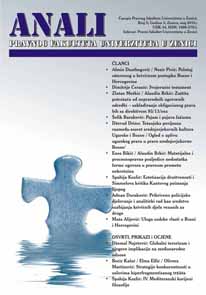
Keywords: Formularverträge; Verbraucherschutz; der Grundsatz von Treu und Glauben; Vertragsauslegung.
Mit dem Verbraucherschutzgesetz bekam das Schuldrecht von Bosnien und Herzegowina eine neue Rechtsgrundlage für die Gerechtigkeitskontrolle von Formularvertragsklauseln geschlossen zwischen einem ferbraucher und einem Unternehmer. Eine umfassende Analyse dieser Kontrolle beinhaltet Antworten auf die Fragen unter welchen Bedingungen Klauseln, auf die der Verbraucher keinen Einfluss nehmen konnte, den Verbraucher binden, falls diese vorhanden sind, welche Kriterien diese erfüllen müssen damit sie nicht für ungerecht und damit nichtig erklärt werden, und schließlich, welche Aulegungsmethoden in diesem Rechtsbereich gelten. Neben einer kurzen Darstellung der Richtlinie 93/13/EWG liegt der Schwerpunkt des Artikels auf der Erklärung der entsprechenden Normen des Verbraucherschutzgesetzes als einer neuen Regelung in diesem Bereich, dem Verhältnis zwischen dem Verbraucherschutzgesetz und den Schuldrechtsgesetzen, sowie den Bestimmungen des Vorschlags für ein neues Schuldrechtsgesetz. Das Ziel des Artikels ist die Förderung und Erklärung von Verbraucherschutzbestimmungen, die noch keine Anwendung in der Praxis fanden, obwohl sie vor acht Jahren zu einer Rechtsquelle wurden, die parallel zu den Schuldrechtsgesetzen das Schuldrecht von Bosnien und Herzegowina regelt. Die Darstellung der Herkunft dieser Bestimmungen aus dem EU Recht wurde in die Funktion des Verständnisses der Absicht des Gesetzgebers sowie des Zieles der Bestimmungen gestellt.
More...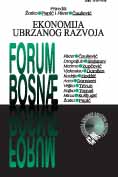
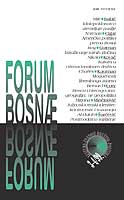
Keywords: the problem of trust
More...
Keywords: constitutional assembly; October 5;
Constitutional Assembly in Serbia, five years after Milosevic's regime.
More...
Keywords: Inheritance Law; Sharia; legal systems; country;
The main objective of the present paper is to point to the distinctiveness of the tolerant Bosnian legal climate in which for centuries different legal solutions originating from different legal systems have been provided. Thus, in Bosnia and Herzegovina one might encounter equal private law institutes relying simultaneously on Roman-Germanic legal solutions as well as on the solutions inherent to the Sharia legal system. With respect to such a tolerant society from the legal point of view, the focus of our study is to analyze the legal status of Muslims in Bosnia and Herzegovina in terms of succession from the Ottoman occupation of medieval Bosnia up to the present days. With regard to the fact that each religious community applies and promotes universal values, Muslims as members of the Islamic community have lived their lives for centuries in accordance with the religious worldviews and universal Islamic values. However, many legislators have shown completely different attitude toward this fact. While some have fully respected the principle of personal validity of norms, the others have totally suppressed every particularity and diversity in the regulation of not only legal relations in respect of succession but of all other social relations and phenomena.
More...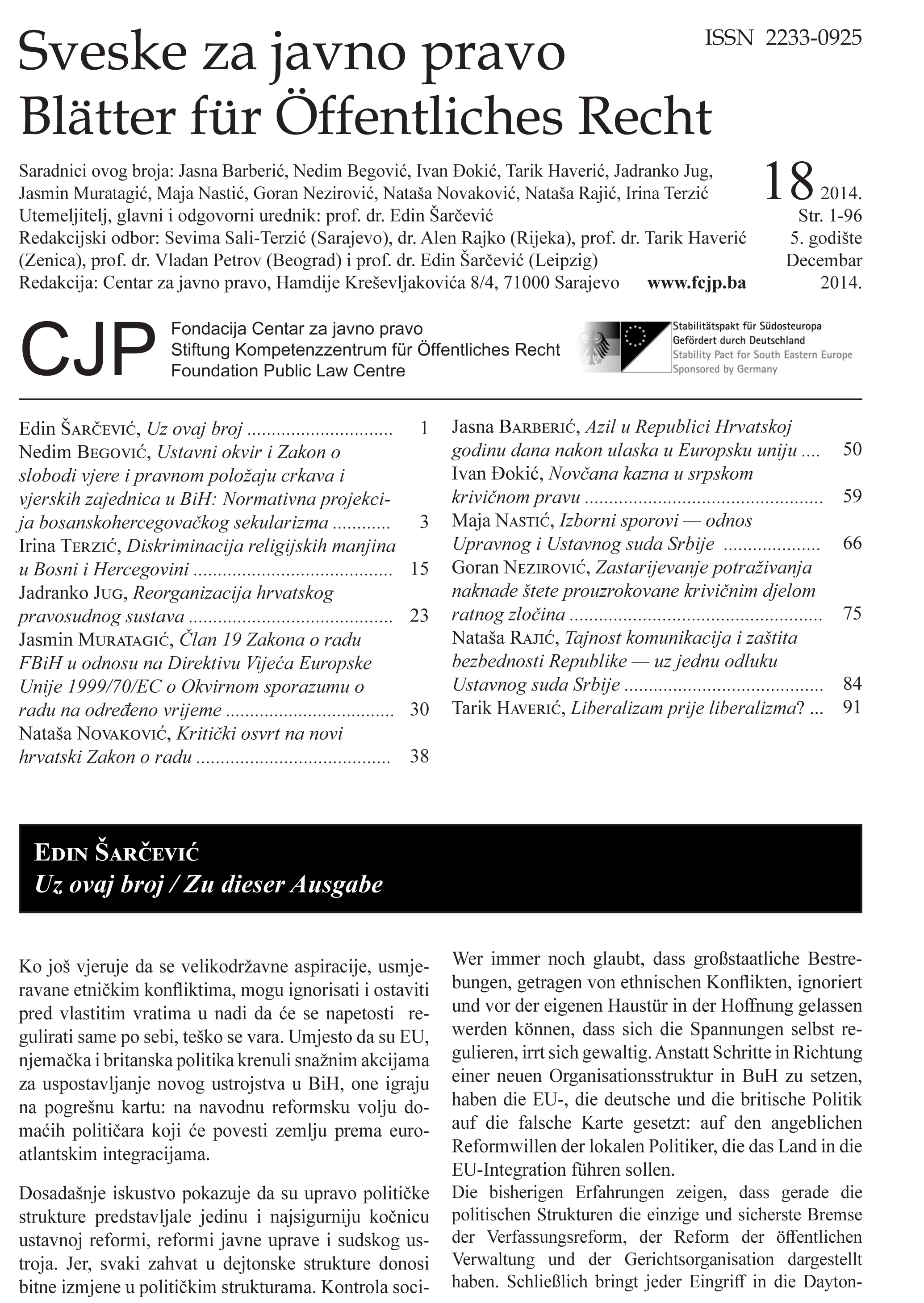
Keywords: Labor Law; Federation of Bosnia and Herzegovina; Council Directive; Fixed-term Work;
“U današnjim uslovima tržišnog privređivanja sve češće se sklapaju ugovori o radu na određeno vrijeme. Njihova primjena u praksi je česta, čak i u onim pravnim sistemima koji postavljaju stroge pravne okvire za njihovu primjenu”. Važno je naglasiti da je ovakva pojava u suprotnosti sa savremenim shvaćanjima o socijalnoj sigurnosti radnika, utemeljenim u univerzalnim međunarodnim dokumentima. Međutim, ovaj trend je prisutan u gotovo svim pravnim sistemima unutar Europske unije, a Bosna i Hercegovina u tom pogledu nije izuzetak.
More...Ништави су уговори који су супротни јавном поретку, добрим обичајима и императивним одредбама закона. Круг случајева ништавности није одређен само (на општи начин) правилом о јавно правном поретку и дорбим обичајима.
More...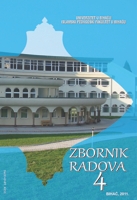
Keywords: legal theory; law; types of rights; rules; abuse of rights;
Legal theories are legal matter that contains less complex legal systems that have the same common goal – and that is an integrated look at a certain legal segment. Also, legal theories offer solutions and answers to the questions and dilemmas from that legal segment through general principles and rules. The theme of this study is just one of the legal theories that involves Islamic law. Therefore, the aim of this paper is to acquaint readers with one of the most important theories which is the theory of law and its abuse. This paper also describes basic principles of this theory in order to understand them in a simple and at the same time and professional manner. Since the issues of rights and freedom are among instinctive human needs, many people are concerned with them. According to Islamic teaching the goal does not justify the means, but rather both goal and the means must be legal. It is quite justified and greatly needed for this theory to be constantly reactivated and elaborated so that people should in smaller proportions violate the rules and principles set by Allah during the consumation of their rights.
More...![Causal link between disease and work on board : [case review]](/api/image/getissuecoverimage?id=picture_2014_44245.jpg)
Keywords: case review; crew mamber - disease; crew member - work on board; ship operator's liability;
While working on board, the plaintiff manifested a disease and was discharged and treated in hospital. In the course of legal proceedings the plaintiff proved neither having been infected on board with infectious agent that had caused the disease nor that the work on board had caused him the manifestation of the same disease. There is no liability of the shipowner and the employer without existence of causal link between work on board and the onset of the disease.
More...![Maritime agency contract invalid clause in general terms and conditions : [case review]](/api/image/getissuecoverimage?id=picture_2014_44245.jpg)
Keywords: case review; maritime agency contract; invalid clause;
[subjects:] Maritime Agency Contract – On Behalf and on Account of Principal – Invalid Clause in General Terms and Conditions – Lack of Agent’s Passive Legitimation in Dispute
More...![Real competence for the settling of disputes arising from the claims for compensation of damage to a vehicle that is taken aboard a ferryboat : [case review]](/api/image/getissuecoverimage?id=picture_2007_45607.jpg)
Keywords: case review; carriage of goods by sea; transport of vehicles; compensation of damage; ferryboat; court's real competence;
A vehicle that is taken aboard a ferryboat on the basis of a ticket issued for the purpose of transportation of the vehicle in question is transported under a contract of carriage of goods (Article 465 to 610 of the Croatian Maritime Code). In that case the vehicle is not regarded as passenger's luggage (Article 611, point 4a of the CroMarCode). The commercial court has the real competence over a dispute aimed at obtaining compensation of damage to a vehicle occurred at the time of its getting aboard a ferryboat.
More...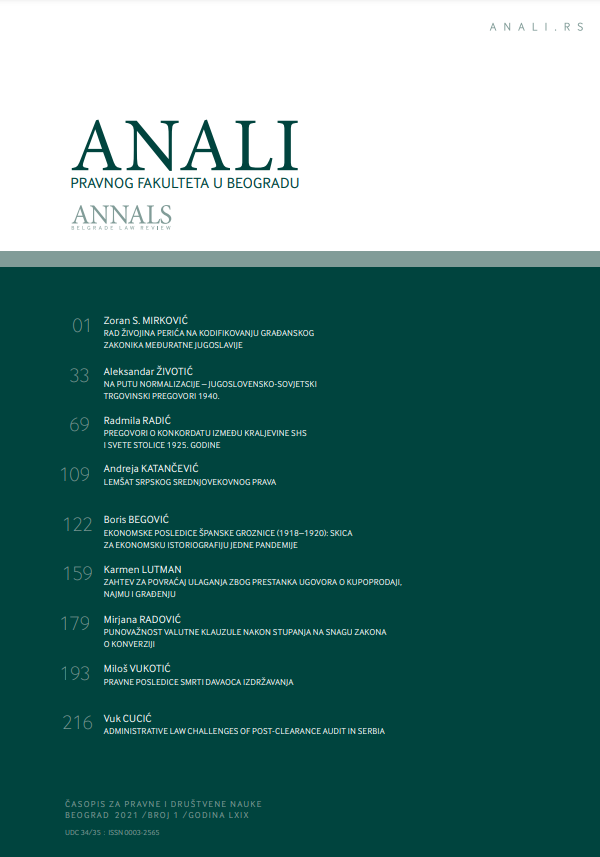
Keywords: Lemšat; Lehenschaft; Lehenhäuer; Mining partnership; Serbian medieval mining law
The topic of this article is the contract of lemšat (Lehenschaft) in Serbian medieval mining law. The author discusses the details of this legal and social institution in medieval Serbia by answering the following two questions: What was the scale of transplantation of Saxon law, i.e., how original were the Serbian rules? Who were the lenhavars – the contractors in a special type of lemšat? The results of the investigation show that Serbian lemšat was a contract of the temporary lease of a share in a mining partnership and that the lenhavars were qualified miners, whose employment was occasionally necessary. The results also show that Serbian medieval mining law contained numerous original legal solutions. The applied methods are linguistic, systemic and historical interpretation of the Mining Code of Despot Stefan, as well as the comparative method.
More...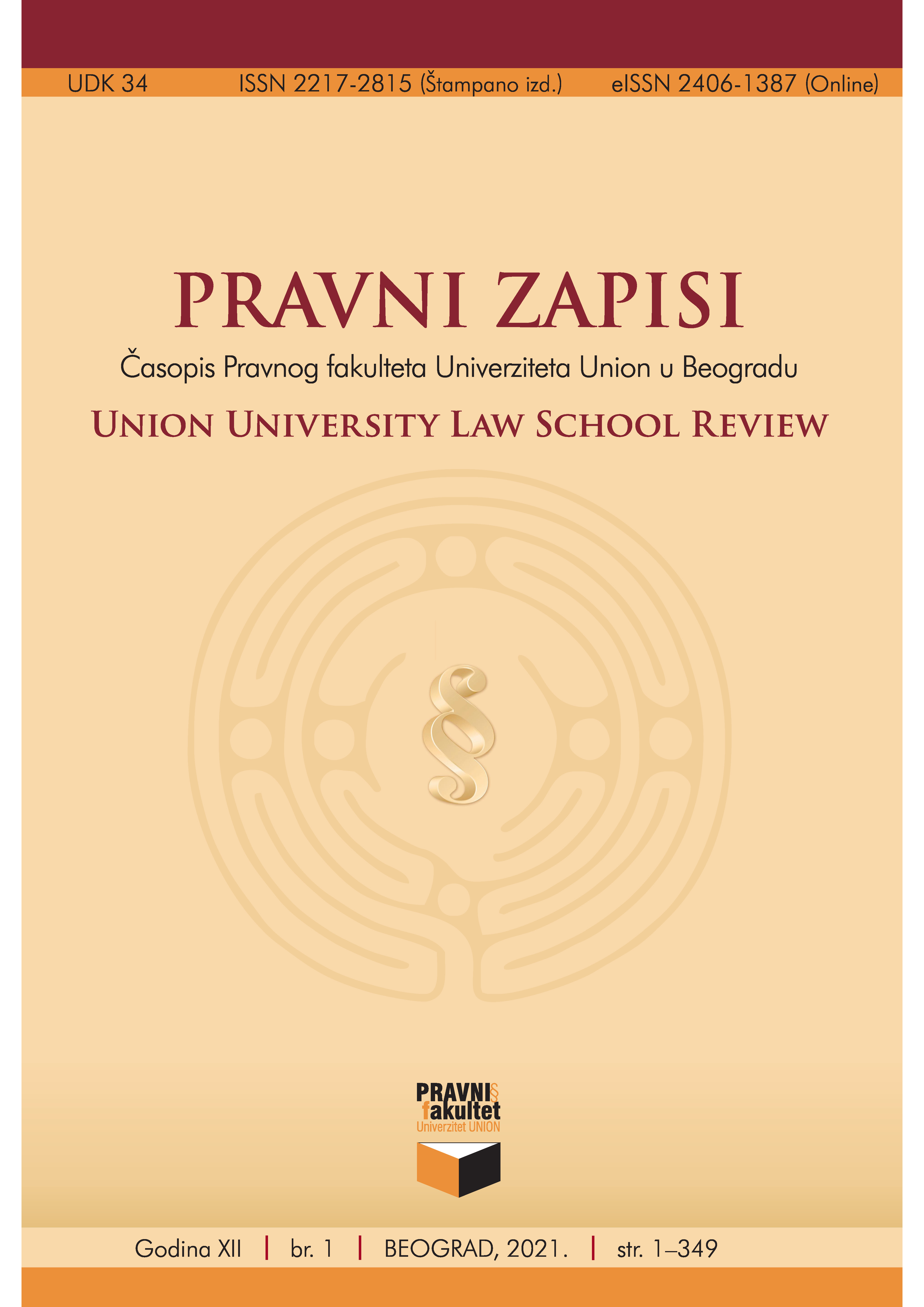
Keywords: consumer; protection of collective interests of consumers; administrative procedure; forms of alternative dispute resolution
The paper presents the system for protection of consumers’ collective interests in the Republic of Serbia and its development perspectives. The paper relies on certain results of the research conducted at the Union University School of Law, as well as on specific comparative legal approaches. The Law on Consumer Protection introduced an administrative procedure for collective consumer protection. Contended arguments in favour of that change were efficiency and low costs of administrative procedure. In practice, administrative protection has proven to be more effective than judicial protection, but the effect of deterring traders from actions that violate consumer rights has not been fully achieved. In that sense, the existing system of protection of consumers’ collective interests in Serbia can be improved by modifying certain administrative measures and by introducing specific forms of alternative dispute resolution in Serbian consumer legislation. The novelties brought by the Directive on Representative actions, whose adoption can be expected very soon, have also been presented in the paper.
More...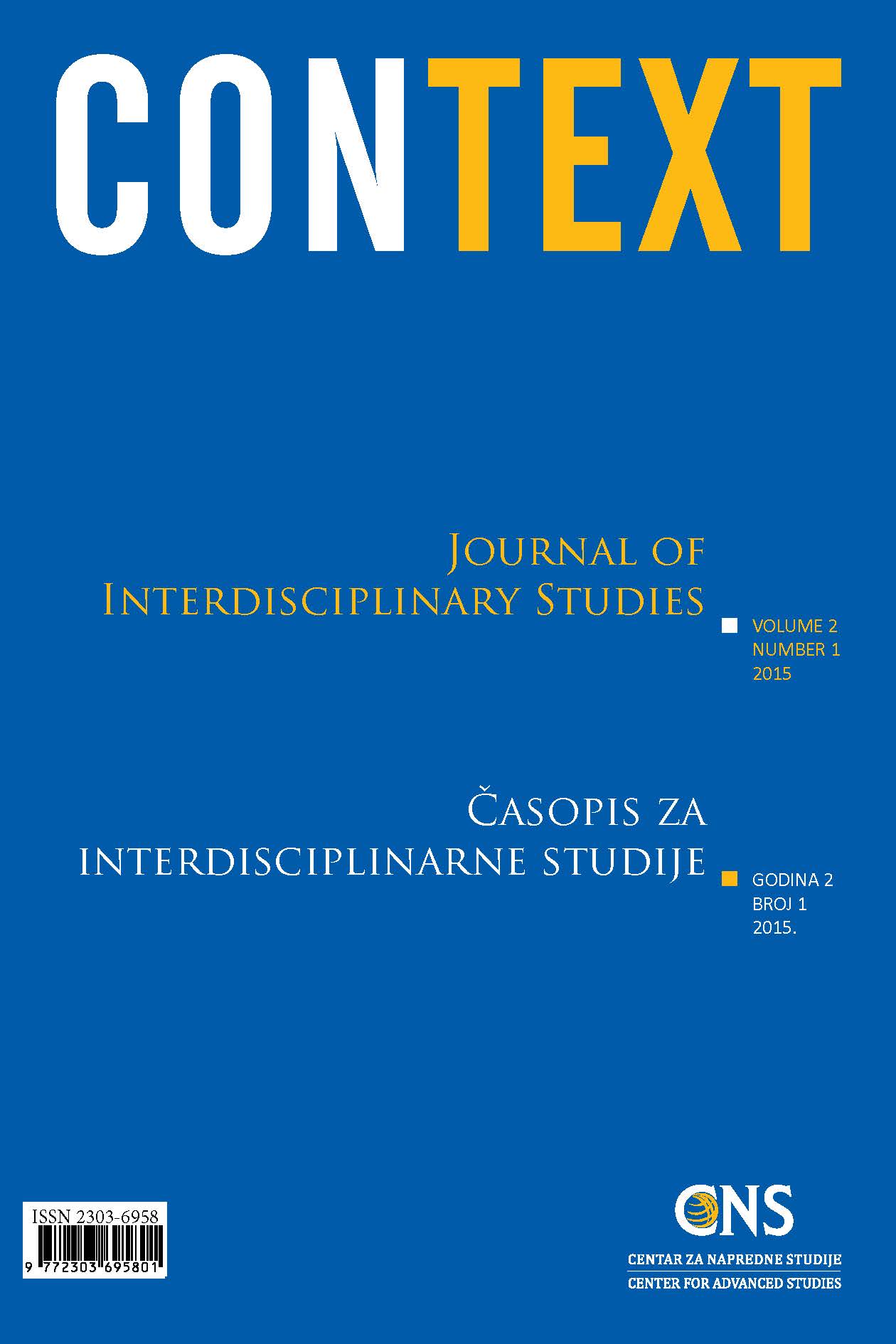
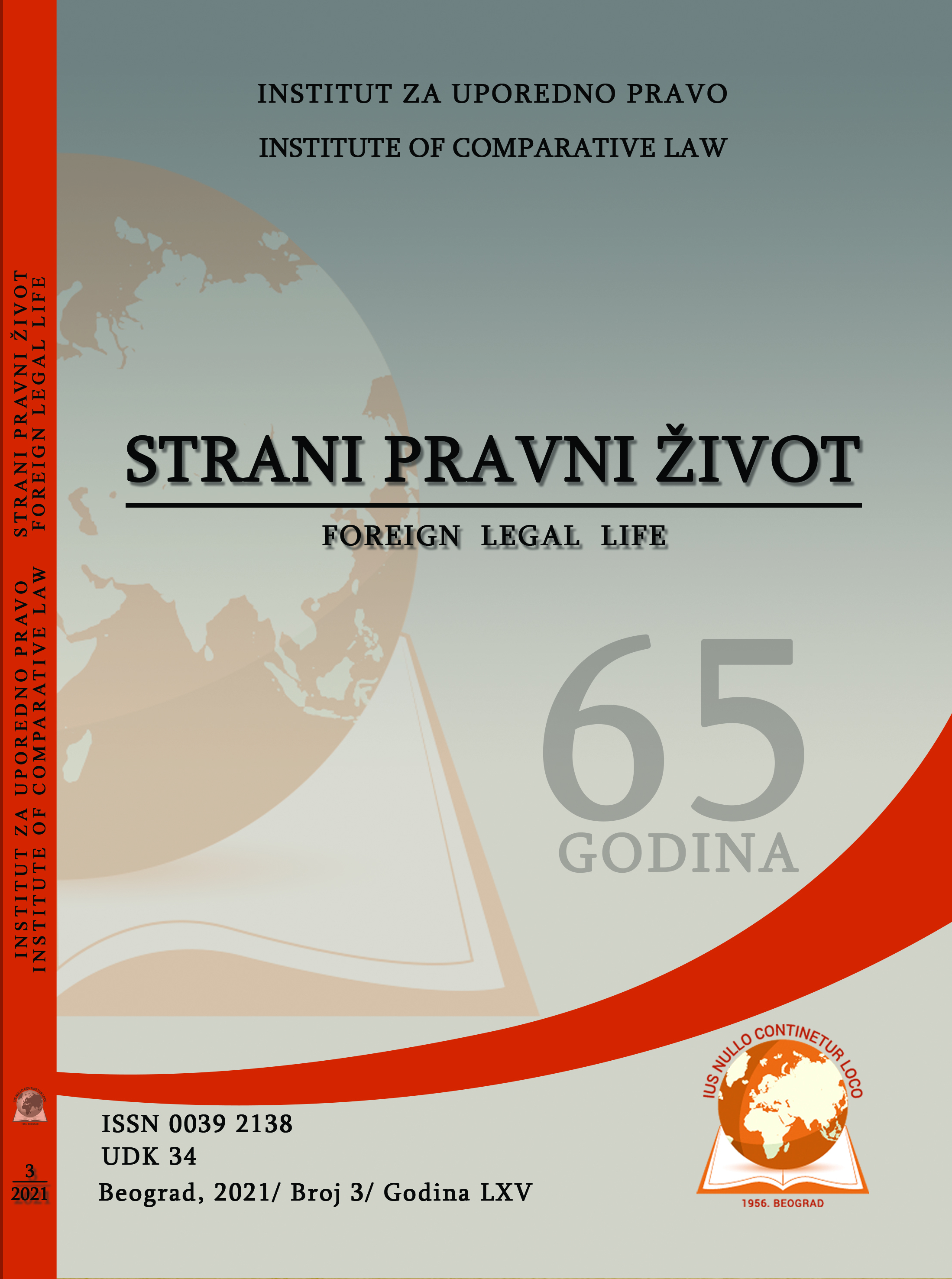
Keywords: labour relation; digital workers; false self-employment; freelancers; platform workers
The use of information and communication technologies in the work process introduced significant innovations, as well as the emergence of new occupations and professions. This digitalisation of work affects the increase of efficiency and easier performance of a number of jobs, but also the precarisation of labour and shifting the focus of employers from employment to other, atypical forms of labour relations. At the same time, employed digital workers exercise some of their labour rights in a specific way. In most cases, digital work implies physical separation from the employer, which raises a number of questions: how to organise working hours, how to supervise the work of digital workers, how they can exercise their collective rights, how the employer can arrange a safe working environment outside its premises, and similar. On the other hand, workers who work outside the employment relationship, among which platform self-employed workers and freelancers stand out, are in a significantly more difficult position when it comes to exercising basic labour rights. The emergence of false self-employment, which is expanding along with the growth of the use of ICT in the work process in various occupations, as well as the virtually unresolved status of the „freelancers“ working exclusively in short-term employment for multiple employers simultaneously or successively, are some of the most pressing problems in modern labour law. The research is focused on the analysis of all these issues; it does not largely deal with the basic clarification of the concepts and development of certain categories of employment - these issues are treated only superficially - but it rather indicates the upgrade of the initial tendencies of changes in the understanding of labour and employment, with particular emphasis on returning to classical form of labour relation, which has been refined and modernised with new elements resulting from the digitalisation of work.
More...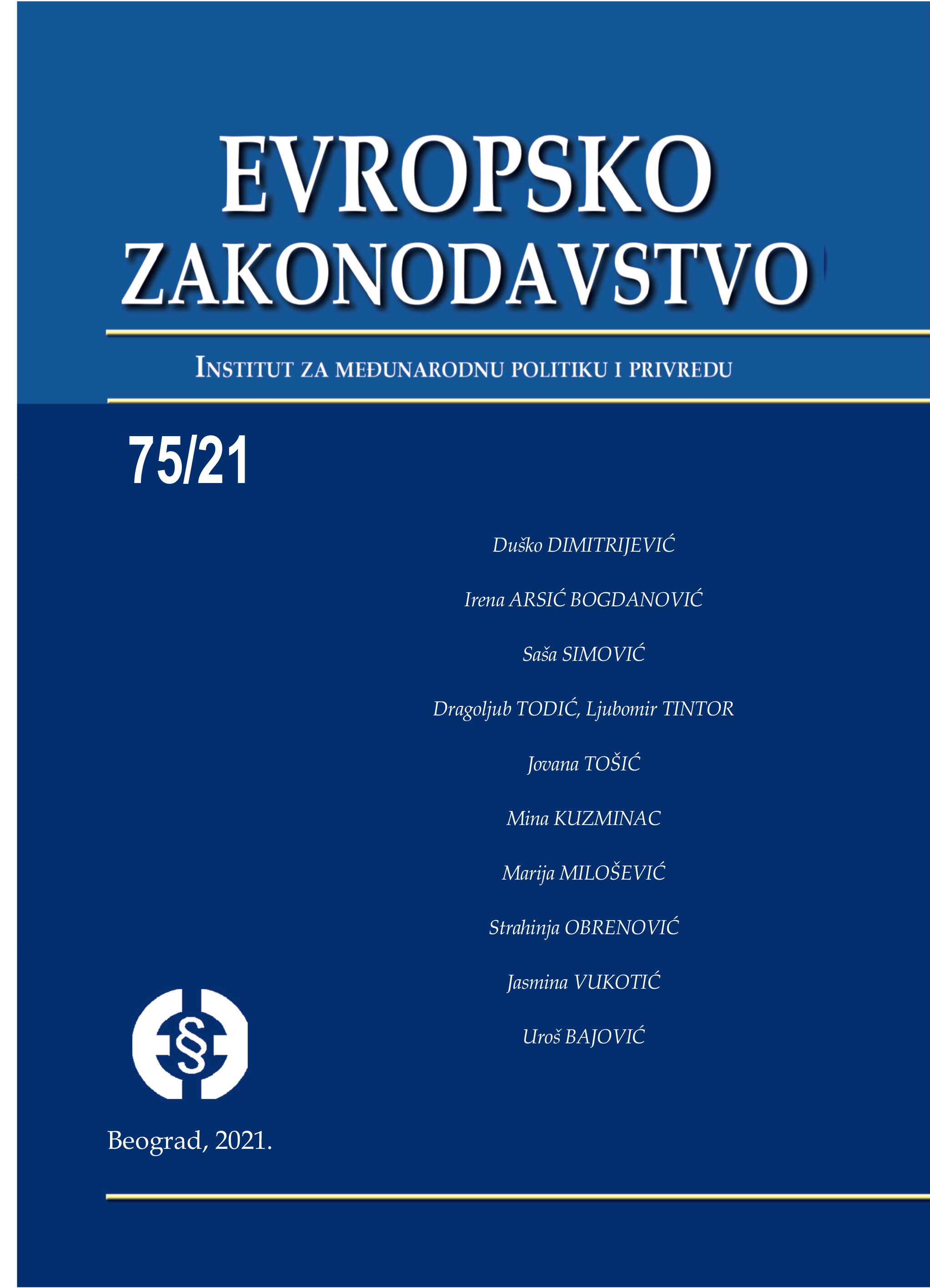
Keywords: European Union; EU Directives; transposition of Directives; harmonisation of internal legislation; application of EU legislation; CJEU; candidate countries
The main goal of this paper is examining the manner in which the place and role of Directives is regulated in the legal system of the European Union (EU) in the context of the obligation of their transposition into the internal legal systems of the Member States. The paper discusses the hypothesis that the transposition of directives is not clearly regulated, and in some elements leaves room for different interpretations and implementation, including non - compliance with the norms of the directive. The analysis is based on the content of Article 288 of the Treaty on the Functioning of the European Union (TFEU), as well as other relevant provisions of this Treaty and the Traeaty on European Union. Starting from the specificities of the Directives as sources of law, the key elements important for understanding obligation of their transposition into domestic legal systems are discussed (the concept and meaning of “transposition”, purpose, competence of EU bodies, “result to be achieved”, method of transposition, deadlines for transposition, reporting obligation to the Commission, etc.). The practice of some Member States as well as various theoretical approaches and difficulties in the process of Directives’ transposition are pointed out. The conclusion states that the transposition of directives into internal legal systems is a systemic issue that should be more precisely regulated having in mind several factors (competencies of this organisation, manner of adopting Directives, their implementation and control over compliance, specificities of Member States’ legal systems in which Directives are transposed, etc).
More...
Keywords: Croatian cultural society; income; self-financing;
This is an original scientific work, a part of a monograph on the Croatian cultural society “Napredak” (Progress) but it deals, only with a segment of the activity of the period 1902-1918. The primary activities were: scholarship grants for their protégé -pupils, students, apprentices in crafts and trade, publishing, buildings, central management every day work, etc.
More...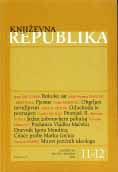
Keywords: Alain Badiou; philosophy; democracy;
Riječ »demokracija« danas je glavni organizator konsenzusa. Pod tu se riječ nastoji zajedno staviti raspadanje socijalističkih država i pretpostavljeno blagostanje naših zemalja ili humanitarne kampanje Zapada.
More...
Keywords: occupancy right; subject and object of the occupancy right; home ownership; lease on residential space; marriage contract; kinship;
This paper analyses the occupancy right as a special institution of the Sharia property law and the way in which resident relationships are regulated in Sharia law. Also, the paper shows the complexity of mandatory relationships regarding occupancy rights, between the owner of residential space and the holder of the occupancy right as a residential space user. Considering the basis for the occupancy right, it can be established in residential space for a longer or shorter period of time. The paper aims at bringing us closer to the principles and regulations on which the occupancy right is based in Sharia law, as well as how Sharia jurists drew scientific and legal conclusions on the issue of the occupancy right by changing them to mandatory right provisions.
More...